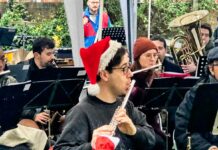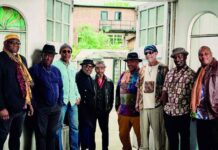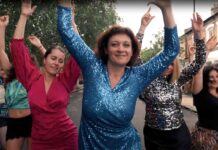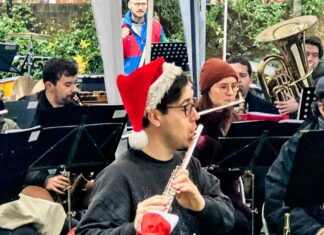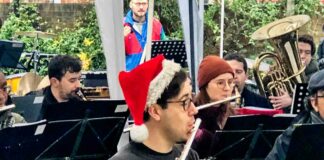Dave Randall talks to drummer/composer Pharoah Russell about his life, music and most recent and personal release Rift, recorded with singer Ruby Barker.
Dave Randall: Pharaoh, Russell, thank you so much for joining us here on the Brixton Blog. Always a pleasure to see you.
You are of course, a drummer and now a singer-songwriter and a composer.
You have, it seems to me, been not only a creative force, but also a friendly face, a source of positive energy on the Brixton music scene for as long as I can remember.
Am I right in saying that you grew up in Brixton?
Pharoah Russell: Yeah, I grew up in Brixton from the age of one. I was born in India, but we somehow got to England with my parents. So, from the age of one, I’ve been in Brixton on the Stockwell Park Estate, basically. It was a very particular upbringing, a very council estate upbringing.
To be in my life where I’m at now, I’m very, very blessed and I’m very happy, even though I’m still in another part of Brixton and part of some of the scenes. You know, Brixton’s huge, there’s lots of things going on.
I’m not part of every community project going on there, but I’m part of some good things. And yes, I’m still around.
DR: Yeah, you certainly are. You certainly are part of some good things, we will come to those. So when did you pick up playing the drums? When did you start with the music?
PR:I started late in secondary school, maybe 16-ish. There was a drum tutor in our school called Mr. Jackson. And he’s amazing. But the first guy I ever saw playing drums was Andrew Mclean. He was in my school. He plays for Grace Jones now. He’s a great drummer. The first time I saw him in the school assembly and I was just like, Whoa, it blew me away. Like completely blew me away. And since that point I’ve been more focused into drums.
I used to play djembe before with … do you know, Henri Gaobi? I used to do his classes in Brixton. I started around 16, 17. It was a good thing I started. It got me out of a lot of trouble, like music does, like sports do. I was in quite a lot of trouble before that point in my school. I went to Stockwell Park school, which was a bad school, and I was a very bad pupil.
That music, it just got me into a different world. That’s what I can say, instead of the bravado around the estate mentality, which I had.
DR: I think you speak for many of us. I think many musicians feel that, in one way or another, music has saved them.
I hear a lot of jazz influences in your playing. Did you listen to a lot of jazzers? Tell us who were your key influences.
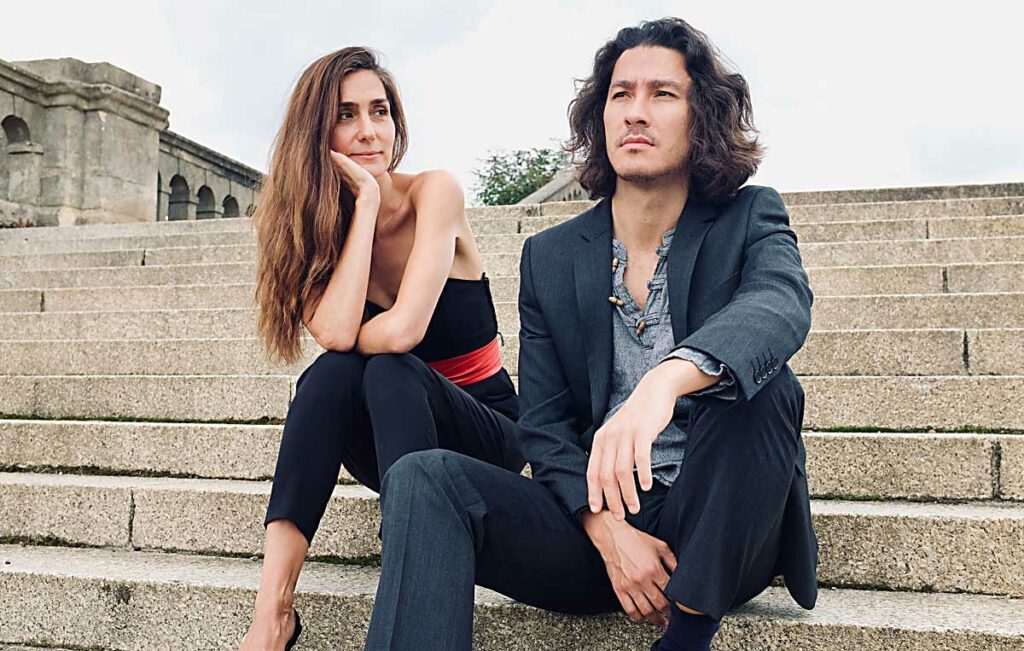
PR: I don’t really play much jazz anymore, but I’ve got a deep love for jazz music. How I got into jazz … I grew up in reggae and hip hop and then my mum and dad got into, do you know Monty Alexander? They got the reggae, but they have the jazz influence as well. So that was the first jazzy stuff I heard. And I was like, Oh, this is really … I listened to that from a young age.
Then my mum’s friend, his name was Wesley, he was like an uncle. He used to take us to Ronnie Scott’s from the age of 16 onwards or maybe a bit younger. I saw Elvin Jones playing there, I would say actually earlier 14, 13.
I was going to Ronnie Scott’s quite a lot to meet Elvin Jones, stuff like that. Joe Zawinul. I saw so many people. I can’t even remember to be honest, but I saw lots like Roy Ayers, obviously … people like that. That was how I got into jazz. And then Coltrane, obviously, I went crazy at a Coltrane period.
At one point I was only listening to jazz, so I was quite closed minded, to be honest … but sometimes, in certain styles of music, you need to be like that.
DR: You need to be like that to make progress. Absolutely.
Subsequently you started to play with all sorts of different and very fantastic, in my opinion, artists, including Ameliana Torini, the great Icelandic singer, the Noisettes, Kokoroko, more recently, Aar Maanta, Ese and the Vooduu People. Where are you at at the moment? Perhaps you should introduce us to your new project, Ruby Pharaoh. Tell us about that.
PR: That is a project that came up in the lockdown. I was in Nepal last year when the first lockdown began. I was there for three and a half months – my mum is from Nepal. So I was there with family.
My friend Ruby, she’s a singer. We were just talking and we never thought about doing music together really. But then I was like: Oh, I’ve been writing some music in Nepal, and I sent her a backing track. She wrote some stuff and I thought: Oh, that’s pretty cool. And then we ended up writing maybe 10, 12 tracks. So this is the third release we’re going to do.
DR: So that’s with Ruby Barker … absolutely fantastic singer. You’ve sent me an advance copy of the single: Rift. Tell me about the single.
PR: It just started as a backing track. We’ve never written in the same room together, me and Ruby.
I would write some music and send it to her. She would write some ideas. I would edit some stuff – back and forth. So we’ve never been in the same room, writing music. I sent her this track and it wasn’t as it is now. And she sent me this melody, but with no lyrics. So I was like, OK. And, for some reason, I started writing these lyrics and it just happened to be about my sister who suffers with schizophrenia. For many years now she’s been suffering, I would say nearly a good 15 years now.
She never had mental health problems growing up, at least that we knew of. And then she had a massive breakdown and these lyrics are about that, I would say.
That’s why we’re going to release it in conjunction with Mental Health Awareness Week. It’s got that vibe about it. So that’s how it came about.
DR: It’s a very beautiful and moving song. I would encourage anyone watching this video to listen. We’ll put a link below this video, both to the song, which will be on BandCamp and, and I think a few days after that, everywhere else, SoundCloud and Spotify and so on.
We’ll also make sure that there is a link with more information about Mental Health Awareness Week. It runs from the 10th to the 16th of this month.
How does your sister feel about this, this song? Have you spoken with her about this?
PR: Yes, but she lives her own life. So, you know, me releasing a song about mental health, predominantly about her, it doesn’t compute with her too much. Do you get what I mean? She doesn’t think about it like that. She just said “Oh, that’s cool”. It’s quite blasé almost.
DR: You have her blessing at least. I think it’s wonderful that you have joined a number of musicians who have recently raised the topic of mental health. It’s such an important topic, isn’t it? Particularly at the moment, particularly after all these months of lockdown. So I think it’s fantastic that you’ve done that.
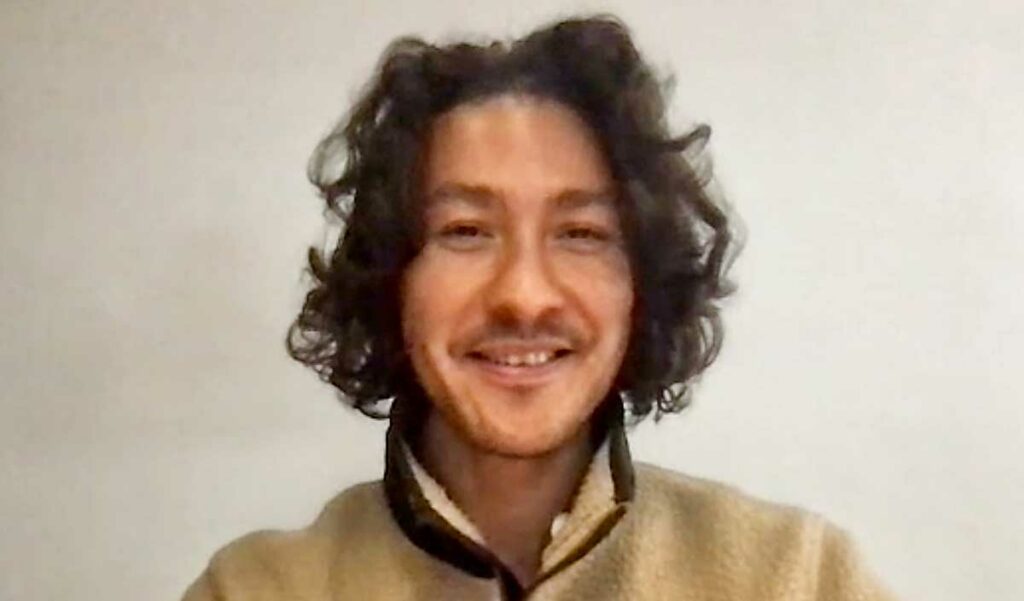
PR: Yeah, it’s a very tricky thing. I wouldn’t say I’m like an advocate for mental health, because there are many people who are doing great things in that arena. But I do like talking about it a lot, for some reason. It’s just because we all have our own sense of what mental health is and we all don’t want to go over the edge. We want to keep our habits and our lives contained and together enough. So no-one wants to lose their good mental health basically.
I’m very aware of it, especially as my sister has schizophrenia. I’m very into talking about it, but there are people out there who would do much, much greater things.
DR: Sure thing. And let me reiterate that there will be a link beneath this video with more information about Mental Health Awareness Week, including where people can access, advice and support and so on if they have been affected by these issues.
I wish you all the best with the single and indeed with the Ruby Pharaoh project and everything else that you’re up to at the moment, and in the coming months. Do you think there’ll be any opportunities to see you live, Pharaoh?
PR: I’m sure there will be, but, as of now, I don’t have any dates in my diary. It’s a strange thing, the whole lockdown. I wanted to take a break from live playing for a while, because I was doing it so much and for so many years. So the lockdown has been an opportunity for me to take that break. So I feel good and I feel quite renewed and hopefully there’ll be some gigs, but I’ve kind of gone off that scene a little, I would say. So, at some point there’ll be some gigs. I don’t have any right now in my diary, which I’m not talking about weirdly.
I know I’m going to want to play again.
DR: Well, one way or another, I look forward to seeing you out and about in Brixton, and for the time being I hope that people listen to this wonderful single release, and I wish you all the best with it. Thanks again for speaking with me.

